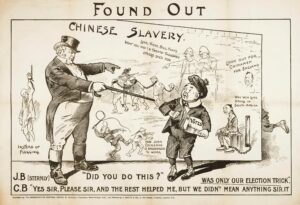End Junk Fees for Renters Act – HR 4100 IH
Synopsis
This bill aims to prohibit owners of covered dwelling units from assessing or collecting certain fees from tenants, and for other purposes.
SEC. 1. SHORT TITLE
This Act may be cited as the “End Junk Fees for Renters Act”.
SEC. 2. RENTAL JUNK FEES
(a) AAPPLICATION FEES.—The appropriate regulator shall prohibit the owner of a covered dwelling unit from assessing or collecting a fee or charge, from any household in connection with the submission of an application for rental of such dwelling unit.
(b) TENANT SCREENING FEES.—The appropriate regulator shall prohibit the owner of a covered dwelling unit from assessing to or collecting from any household applying to rent such dwelling unit any fee or charge for costs of conducting any criminal history, tenant screening, consumer report, or other background check of such household.
(c) LATE FEES.—The appropriate regulator shall require that owners of covered dwelling units—
- (1) only impose fees or charges on tenants in connection with the late payment of rent for a covered dwelling unit if the amount of such fee or charge is less than 3 percent of the monthly rent the tenant pays for such covered dwelling unit;
- (2) only impose fees or charges on tenants in connection with the late payment of rent for a covered dwelling unit if 15 days have elapsed since the date on which the rent was due;
- (3) disclose the requirements imposed under paragraphs (1) and (2) in any lease entered for a covered dwelling unit on or after the date on which rules are issued under section 3.2
(d) REQUIRED DISCLOSURES.—The appropriate regulator shall require each owner of a covered dwelling unit to disclose to the tenant before a lease is signed—
- (1) the total amount due each month, including any fees;
- (2) to the degree practicable, a summary of any past litigation between the such owner and any former or current tenants;
- (3) a description of any ongoing pest and maintenance issues; and
- (4) the amount rent increase for the property in each of the 10 previous years.
(e) DEFINITIONS.—In this section:
- (1) APPROPRIATE REGULATOR.—The term ‘‘appropriate regulator’’ means—
- A. The Secretary of Housing and Urban Development, with respect to covered dwelling units described in—
- i. paragraph (2)(A); ii. paragraph (2)(B), to the extent the Federally backed mortgage loan referred to in such paragraph is described in paragraphs (A), (B), or (C) of paragraph (3);
- (2) Federally backed single-family mortgage loan.—The term ‘‘Federally backed single-family mortgage loan’’ includes any loan that is secured by a first or subordinate lien on residential real property (including individual units of condominiums and cooperatives) designed principally for the occupancy of from 1- to 4-families that is—
- A. insured by the Federal Housing Administration under title II of the National Housing Act (12 U.S.C. 1707 et seq.);
- B. insured under section 255 of the National Housing Act (12 U.S.C. 1715z–20);
- (3) Federally backed multifamily mortgage loan.—The term ‘‘Federally backed multifamily mortgage loan’’ includes any loan (other than temporary financing such as a construction loan) that—
- A. is secured by a first or subordinate lien on residential multifamily real property designed principally for the occupancy of 5 or more families, including any such secured loan, the proceeds of which are used to prepay or pay off an existing loan secured by the same property;
- B. is made in whole or in part, or inured, guaranteed, supplemented, or assisted in any way, by any officer or agency of the Federal Government or under or in connection with a housing or urban development program administered by the Secretary of Housing and Urban Development or a housing or related program administered by any other such officer or agency, or is purchased or securitized by the Federal Home Loan Mortgage Corporation or the Federal National Mortgage Association.
- (5) OWNER.—The term ‘‘owner’’ means, with respect to a dwelling unit, any private person or entity, including a cooperative, an agency of the Federal Government, or a public housing agency, having the legal right to lease or sublease the dwelling unit.
SEC. 3. RULEMAKING
The Bureau of Consumer Financial Protection and the Federal Trade Commission shall, not later than 180 days after the date of the enactment of this section issue a rule that—
- (1) defines the term ‘‘junk fee’’ with respect to rental housing; and
- (2) finds the furnishing of any information about an unpaid junk fee (as such term is defined) pursuant to paragraph (1)) to a consumer reporting agency to be a unfair or unconscionable means to collect or attempt to collect debt in violation of section 808 of the Fair Debt Collection Practices Act.
By HR 4100 IH, Congress aims to protect renters from unfair and excessive fees. This legislation establishes specific rules for landlords, ensuring transparency and fairness in rental agreements.




